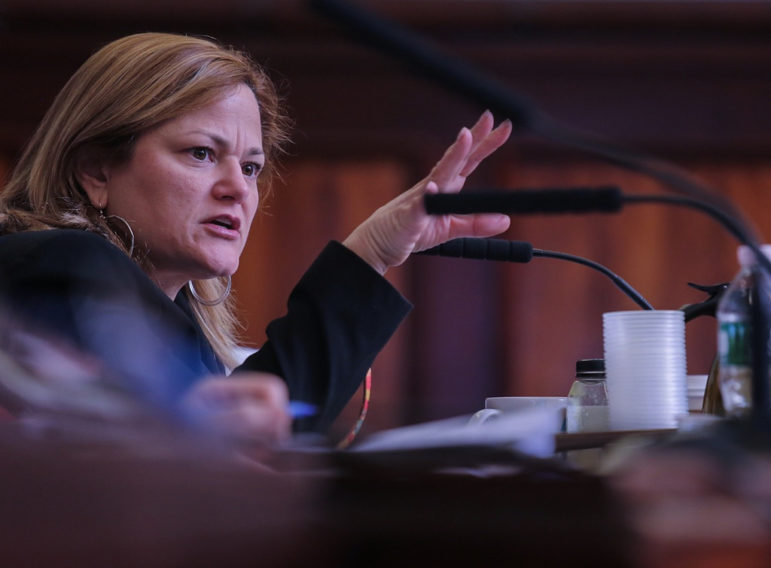
William Alatriste/NYC Council
Council Speaker Melissa Mark-Viverito, who has represented East Harlem since 2006, returns to private life—for now, anyway—on December 31.
During the last general meeting of her dozen years on the Council on Tuesday, as she presided over her final official gathering after four years as speaker, Melissa Mark-Viverito managed to keep her emotions in check, although her eyes filled with tears more than once. By the next afternoon, even that hint of wistfulness was gone. Sitting in City Hall, Mark-Viverito was thinking soberly about how to get all the personal items out of her three offices before she formally leaves office on the last day of the year.
But if the emotional temperature has risen and fallen over recent weeks, the speaker’s message has been consistent: She has no regrets about her tenure, her approach to managing Council members or conducting business with the mayor. And she has little to say about the race to succeed her or her own future, although she did indicate that being out of office wouldn’t close off a theoretical path to becoming mayor down the road.
In an interview with the Max & Murphy podcast, she also had little to say about what doomed the waste-transfer capacity bill that fell apart at the 11th hour, or how her vaunted moves to increase independence in the Council altered the kind of legislation that made it to a final vote.
But Mark-Viverito did talk about some of the issues raised by the sometimes testy debate in the Council chambers the day before about Intro. 182-D, the more controversial of the two bills that make up the Right to Know Act.
For one thing, she derided as “laughable” any contention by advocates that the vote on Councilman Ritchie Torres’ bill was an all-or-nothing litmus test on a member’s progressive credentials. It is not clear that most advocates framed it in that way, but Mark-Viverito sided with Torres in stressing that advocates, even those who had fought the Right to Know campaign for years, were just one voice in the debate over legislation.
Mark-Viverito also discussed an interesting point that came up during the Council debate: whether the mayor or NYPD would have resisted obeying a more aggressive version of the law.
“It’s not totally clearly defined what we can legislate,” the speaker said. “If you want to get something done… you want to look to get some sort of partnership.” Failing to do so, she said, could result in a legal challenge that might end with a court finding that the Council has less authority than it has operated with, which would “weaken the institution.”
“These are the decisions that we have to make,” she told us. Advocates push their individual causes, she added, but the speaker and Council “have to look through a wider lens.”
Listen to our full conversation, where we are joined by Gotham Gazette reporter Samar Khurshid, below.








